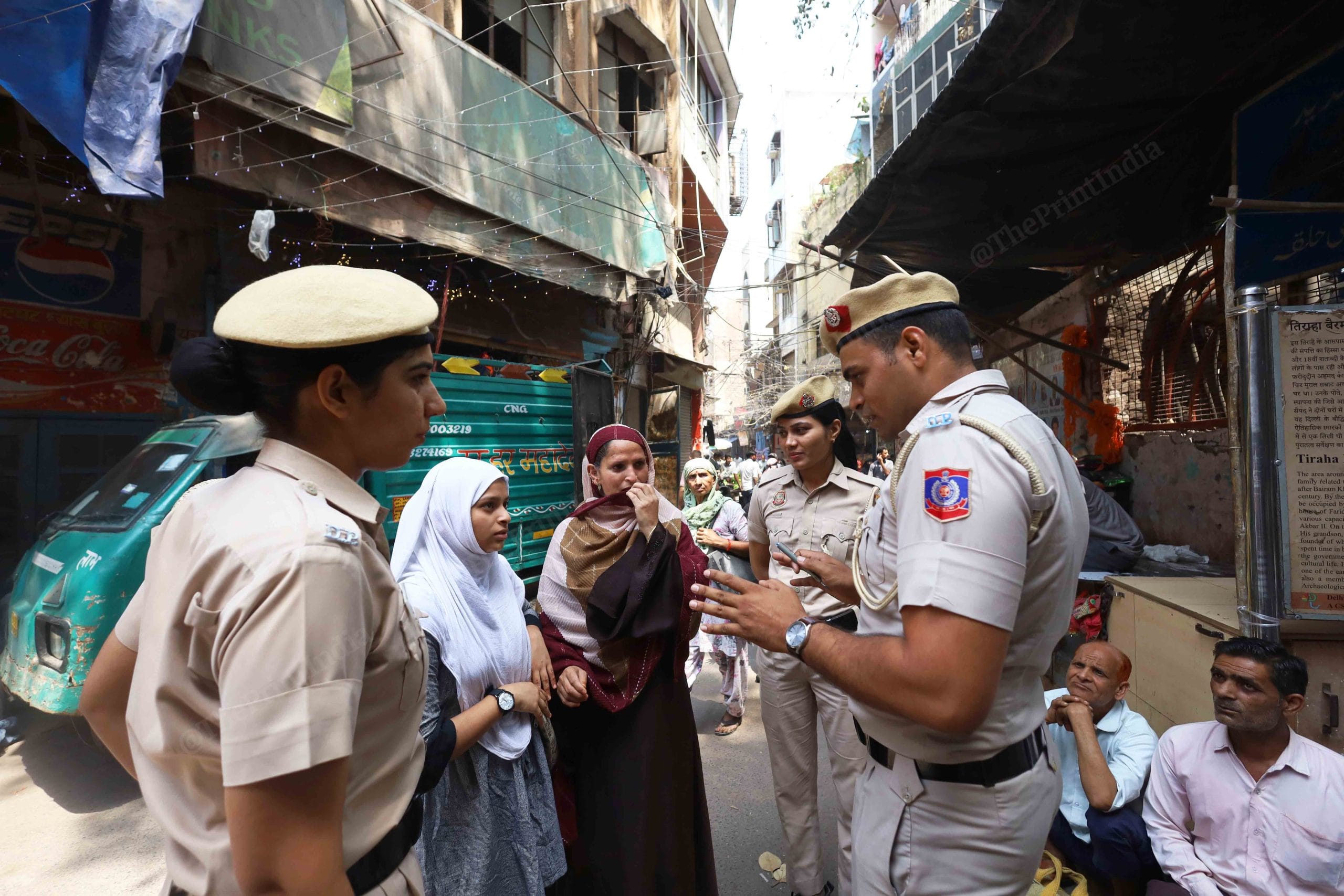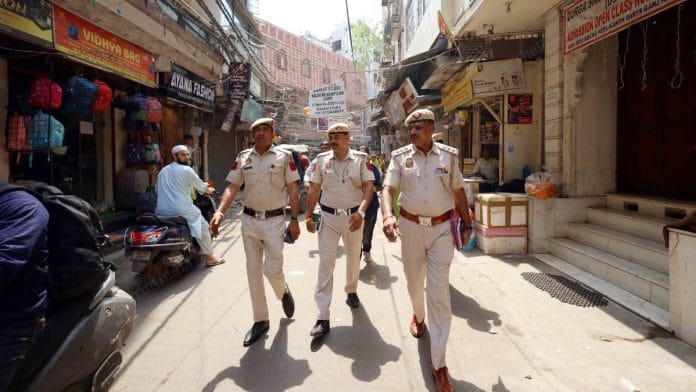New Delhi: It’s 4:30 pm on Tuesday, and Delhi Police personnel can be seen monitoring the area outside Govindpuri Metro Station, making sure drivers don’t harass commuters.
Head Constable Ajay Kumar instructs e-rickshaw drivers on the street, “Don’t run and surround them (commuters). Stand only in your area.” Some drivers still try to make it towards the passengers, trying to bypass the officers, but they are quickly reined in.
Some 50 metres from Gate No. 2 of the metro station, as a DTC bus arrives, half of the police team, including women personnel dressed in plain clothes, position themselves at both ends of the bus stop.
Suddenly, head constable Surender Pal catches hold of three men standing at the stop. He puts them in the police vehicle. “They looked suspicious. They were standing in the road where the bus would come and had no intention of taking the bus anywhere. I saw them taking some videos and looking at the women waiting at the depot,” he tells ThePrint.

Meanwhile, a second constable, Renu, who goes by first name, gets on the bus to make sure the men don’t sit in the seats designated for women.
“We are from the ‘Shishtachar’ squad. We are here to help you. If you see someone following you, stalking you, making obscene gestures or even making you uncomfortable, please inform us at 1097, 1091 or 1098,” she tells women passengers.
Adding, “Your identity will remain anonymous.”
Last month, the Delhi Police launched ‘Shishtachar’ (etiquette) squads across all 15 police districts in the national capital. The area near the Govindpuri metro station was one of the key hotspots identified in the South East district. This comes a month after the Bharatiya Janata Party (BJP) government came to power in Delhi. Among its pre-poll promises, the BJP had said it would create squads aimed at enhancing women’s safety in public spaces.
But there is some wariness to the idea of such ‘squads’ on the street.
To some, they sound eerily like Uttar Pradesh Police’s Anti-Romeo Squads. Those teams, set up by Yogi Adityanath when he took over in 2017, have been accused of harassing young people under the guise of curbing eve-teasing. However, several officers from the Delhi Police’s Shishtachar squads told ThePrint that they were given strict instructions not to impose their morals and ethics on the public and only focus on women’s safety.
“We have been warned not to disturb couples or people randomly. This is not just an anti-eve teasing squad. It’s much more than that,” says head constable Anil Kumar. “This is to prevent stalking, harassment, snatching, molestation and other street crimes as well.”
Also Read: MHA prepares concept paper for ‘institutionalised deradicalisation programme’ for terror ‘suspects’
Duty not to moral police
Speaking to ThePrint, Additional DCP (South East) Aishwarya Sharma says, “We started these squads in Delhi with the objective of improving women’s safety.”
“Vulnerable spots,” she explains, were identified across each district of the capital on the basis of a multitude of factors, including the number of PCR calls made from the area, the number of street lights and CCTV cameras and how crowded they are.
In each police district at least two squads work two shifts—12-3 pm and 5-9 pm—daily.
Each squad covers seven to eight police station areas.
“They are stationed outside schools, colleges, markets, metro stations, etc. The police personnel in this squad have been exempted from other law and order work so that they can dedicate their time fully into this,” says DCP Sharma.
However, currently these squads function only during the day. At night, there are night patrol teams. A senior police officer says this is just the first phase. “We currently don’t have the staff to deploy the squad at night. Things will change and upgrade over time.”
Each squad has four head constables, a sub-inspector, an inspector, and four women police personnel—some of them in plain clothes.

The personnel have all received training, held in two sessions—one on the legal aspects of the initiative and the other on how to execute it. Asked how they ensure that police personnel on duty aren’t misbehaving with people and harassing couples, inspector Mukesh Kumar from one of the squads in the central district says, “I take reports from my team, and we have daily reviews with our respective ACPs and DCPs.”
According to Kumar, they don’t stop couples. “Our duty is not to moral police them. We will only inquire if we should have a school kid going with someone in civilian clothes and this too, if we find the man suspicious.”
Creating public awareness
Delhi Police is also trying to create public awareness on women’s safety through programmes at schools and colleges, as well as by talking to people in the area the squads are patrolling. “Our team, stationed at different hotspots, spreads awareness by speaking to groups of women. Additionally, the men with them are also informed,” says Kumar.

Kumar with his team held one such programme at the Shakti Premwati Public School in Sita Ram Bazar, Chandni Chowk. “No one should make you feel uncomfortable. If anyone makes untoward advances, inform us. We are there for you. Please inform your teachers, parents and us,” Kumar tells girl students of Classes 6 to 10 as well as teachers.
Asked if they also speak to male students are also informed, the inspector says, “This phase one, where we are focused on telling women and girls about their rights. Its primary focus right now is to boost the confidence of women to report crimes against them. We will also hold other sessions for boys.”
These sessions are held across schools and colleges in Delhi in coordination with the respective authorities. His team also stopped groups of women in the Sita Ram Bazar market area to talk about women’s safety.
One woman tells the inspector, “Sir, please do something. Men here get drunk and create nuisance at night.” Women constables tell her about the helpline and emergency numbers.
As they are there, they instruct some men, who are sitting on their motorcycles on the side of the road, not to do so. Meanwhile, two other women constables, dressed in civilian clothing, try to blend into the crowd and keep a watch from near the shops.
(Edited by Sanya Mathur)
Also Read: Kiran Bedi ‘wiretapping’ revelations unravel family feud, unprobed angle in Swiss diplomat rape






